|
|
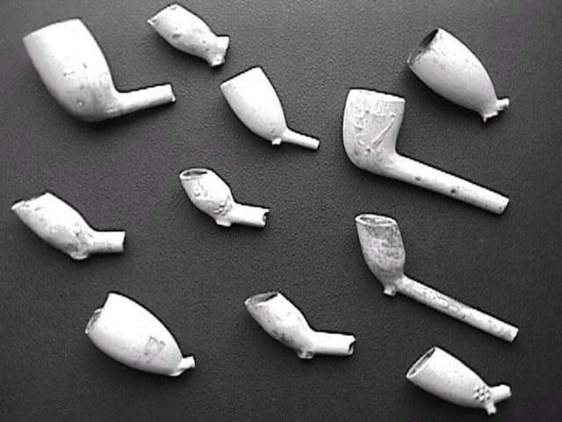
|
|
|
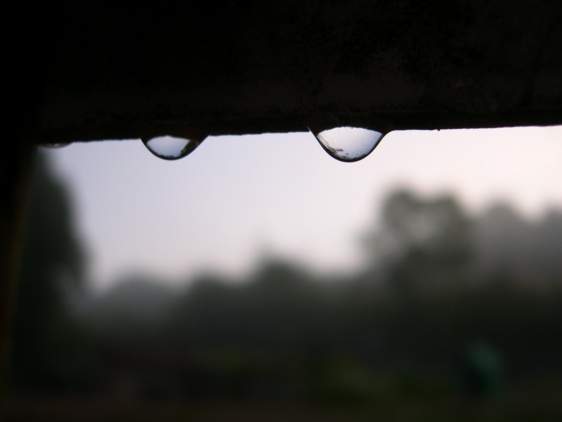
|
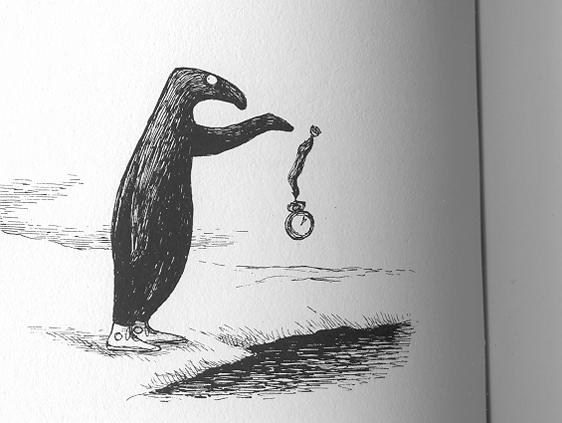
|
|
|
|
|
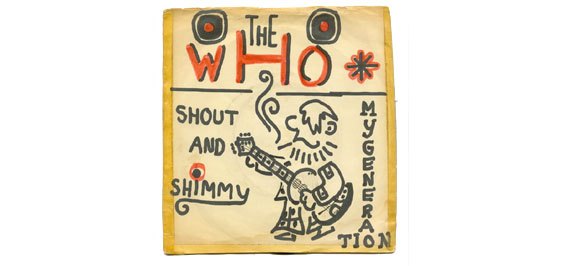
|
|
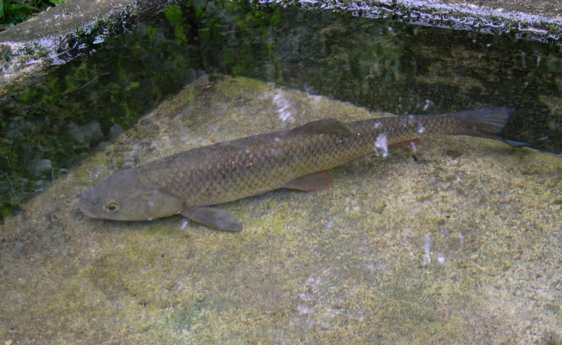
|
|
nqpaofu.com 1998-2003 jouke kleerebezem Notes Quotes Provocations and Other Fair Use
conversational drift, informatic license, exquisite enclaves
nqpaofu.com by jouke kleerebezem
75
notes, quotes, provocations and other fair use
74
history
portal
76

[11 September 2003] full moon
I wake up and get out of bed at 3am. sharp. Is it not that moon in my face, but breath regained? Or it is because the more I work, the more I work. There are tons of different things to manage, prepare and discuss at JvE. Then my trip to Vilnius is due in three weeks from today, for a week of personal publishing pandemonium field work. Hit the space bar. The 24/7 event opens tomorrow.
Later, to illustrate a Dutch saying ('het regent pijpe[n]stelen'), I find the above photograph on the Pijpekoppen site. Clay pipes with long cool stems (which were actually built up around 'pijpestro', a natural straw) that always lack when they are unearthed after a couple of hundred years.
[4 September 2003] reprise
Jump back to NL, six hours by car to Maastricht, three by train to Rotterdam for the Sealand symposium and three back that same night. I'll be posting here soon when I'll have regained breath again.
[2 September 2003] pause, rentrée
Pauze.
Ray Davis in yesterday's Bellona Times Back to School Special:
One can gain knowledge about competitive sports, or pleasure from competitive sports; one can even meet lovers while engaged in competitive sports. But knowledge and pleasure and love are not themselves competitive sports, and any institution that treats them as such is corrupt at the root.
And before that optimistic conclusion:
So how does an insight devolve into a method and a school and a curriculum and a catechism?
I have this fantasy, of course about knowledge and pleasure and love, those are the ones, but also about what insights, methods, schools, curricula and catechisms can do, apart from measuring decline all the way down from primary sources deep into the dark 'cancer of interpretation', (Eco), ever more secondary...
Also catechisms can trigger insight. You don't even have to crawl the whole way back up — one lousy catechism can give you one hell of an insight as if by magic, if only that insight would be what a catechism it is that you are looking at. Then, since history (I always make that 'histroy' typo, every time I am tempted to leave it because it's so, um, telling also in this context) does not repeat itself but sends same arguments down in ever new contexts, yesterdays curriculum will be tomorrow's insight. It's possible. Would I have an example, no, but every time period treats history's histories different from a previous one.
From outside the MSCC business, where all Insights live happily together and are nurtured and pampered, since a couple of years a steady stream of secondary primary mix speculation and commentary is sent. We can closely watch its coming into being, its formulation and correction.
IMSCC is a time machine, too! Date stamp your insights!
Not entirely irrelevant re:theabove, yet aside: Fabula, la recherche en littérature, with the open source Dictionaire Roland Barthes

Jeanine Geerts 1945-2003

It would carry off objects of which it grew fond.
And protect them by dropping them into the pond.
The Doubtful Guest, Edward Gorey, from 'Amphigorey' (1979) (detail)
[30-31 August 2003] fondness
Carrying off objects of which we grow fond is a journal's ultimate fate. We cover those objects up. Even if such a 'journal' is public and a daily routine, an exercise in writing more than a report-to-self, those objects which we are fond of disapear in them to become as hard to retrieve as time in a pond. The journal is a doubtful guest in our lives.
It came seventeen years ago — and to this day
It has shown no intention of going away.
local color
Service notice: Saturday 30 August through Sunday 31 R+r+J stumble around the Moulin de-bachelorizing its household.
[28 August 2003] personal publishing editing issues
After for an hour or so having intuitively clicked, departing from familiar publications, via some comment link, into the sheer abundance of the personal publishing phenomenon, I crave for clever organization beyond lists of lists of lists. Where to start such organization for improved content retrieval and what to navigate by would be prime objects. If 'editing' concerns the agency which collects and references mutually relevant and enhancing bits of content, this is an editorial challenge. Personal publishing with its growth is 'editorially challenged' beyond the accidental list every publication presents, which from an editorial point of view rather be short than long. Long lists present no selection and better be replaced by one link to Google, or to Google searches.
Not to worry about the content of personal publishing — it will be abundant and proportionally brilliant — we can allow to think of its natural organization (editing, financing, re-presentation).
Nearly three years ago I imagined to track cross-linking providing the parameters for mapping personal publishing interests. How ever much I trust search engine functionality to improve and give better guidance over the years to come, still I would hope for a more personal agency.
The Rationale of HyperText, Jerome McGann (Last Modified: Saturday, 06-May-95 17:55:44 EDT)
OWL Web Ontology Language Overview, W3C Semantic Web
Where is the editor?; Resistance in the creation of an electronic critical edition, Edvard Vanhoutte
NITLE Blog Census (..."an attempt to create and share a regularly updated database of all known weblogs. The census has been active since early May, 2003. NITLE is the National Institute for Technology and Liberal Education, a non-profit national consortium supported by the Andrew W. Mellon foundation, and dedicated to helping liberal arts colleges make effective use of technology.")
What are the needs of a current practice. Going by my own routine and that of some of my closer friends and colleagues I see the following emergent needs (non-exhaustive list):
- content management
- publication management
- cross-publication mapping
- permanent addressing
- curatorial management (conservancy)
- research into the above
Any of these issues have both architectural and interface, functionality and design components. They are however primarily of editorial concern. If, supervision lacking, the reader is the editor, s/he has to be facilitated to do her job, reach her goals. The reader-as-a-writer needs additional tools, even if the writing doe not go back public, but remains with her.
The content of my hard disks will ultimately have to compete with the volumes in my library, both in presence and accessibility.
- content management: where to put my material and how to keep macro and micro view, how to add and relate distinct bits, without having to have five of more programmes open all of the time: browser, authoring software, image processing, mail, FTP. I publish from a collection and a connection. How to prepare content, how to link bits, for publication.
- publication management: since the front-end is on the web, I should get it there. Ideally some suggestions would come from and leading into my published archive. It happened that for a second time I typed the same quote, not remembering I'd done this before. Something had to start blinking there.
- inter-publication mapping: to reveal who else is on a same trajectory — you need to know when you are delving into something.
- permanent addressing.
- curatorial management (conservancy): conservation is a big issue for me. Who does, how are publications related and categorized.
- research into the above.
I'm a primitive user, I do all my HTML by hand, ditto FTP etc. But I'm not easily tempted to switch softwares if my demands aren't met. I also have to be really happy with the ware, like I am with MacJournal which perfectly fits my text editing for non-line stuff. I keep journals as collections of notes, correspondence books, essays and their book lists etc.
Ceterum censeo Echo and the Bunnymen to be the best of the 19early80s brit post-punk. It's the way we swing. After the fresh drive of 1980 Crocodiles, 'going up', listen to Porcupine 1983, 'heads will roll'. I'm not too often in the mood for that 80s boom boom, but once I am I am and all that jazz...
[27 August 2003] 5 years ago
27 August 1998 we signed the Moulin du Merle compromis de vente.
[26 August 2003] linked patronage
For the linked publicist we want to look into linked patronage — not the tip jar, not micro-payment, pay-per-view, nor eye-for-an-ad content. Why is personal publishing successful? Could that very success translate into a successful economy for personal content, I wondered in 'revenue talks', following 'whatblog'.
The tip jar came to mind first. Some incarnation of it has been tested. Of course the first goal of bringing money into personal publishing would be to provide its authors, its publicists with a living. But if we don't want pay-per-view or some kind of subscription based access exclusivity — in other words: if we don't want to interfere with the current production and free availablity of publications — we are looking at an interesting question: why would one pay for something that's free?
(later, when less distracted)
BTW, added to sitemarks
Walter Benjamin Research Syndicate
local drama
'Tis on a 50cl can of 1664 and Ray Davies in front of a wild crowd in the early 1990s 'the only time I feel awrite is by your side', All Day And All Of The Night, one late afternoon after having watched Harry Potter A Chamber of Secrets DVD on the 01Book with R+r that a bhikku click is rewarded again after summer recess. Ain't life poifect? We can all get back to work now, all day and all of the night, of course.
[25 August 2003] stemmingmakerij encore
Taking the editorial remarks of De Witte Raaf to heart I rewrite large parts of Stemmingmakerij and throw out personal attacks. Hehe they were not all that evil, besides some people just have a way of personifying specific, um, mistakes. They know who they are, so why rub it in. I'm not on any Whistleresque quest. But to some extent we all have to develop that Gentle Art of Maintaining Enemies.
Stemmingmakerij will appear in DWR#105 in a couple of weeks. I hope to find some time soon to add it to the essays at idie.net. Meanwhile, the month being nearly over, I'm still immersed in the 'August essay' Het oordeel van de twijfel. The art or design as knowledge searches were part of it and in the margins I hit upon recent googliania. Then I came to wonder about the financial economy of the personal publishing content economy in the context of that same essay. Little of this off-spring will be found in it, but it is part of the circling around what I see as the major elements of change in contemporary culture, as is described in Stemmingmakerij, referring to the state of commentary, or criticism, which I situate in personal publishing for all of its unique qualities.
stemmingmakerij encore
Een dagelijkse publiek toegankelijke productie van kritisch commentaar en reflectie, in een tempo dat met de culturele productie de pas houdt, vindt zoals geschetst sinds een jaar of vijf plaats in de vele vormen van personal publishing op het web. Hier wordt opnieuw kritiek bedreven. Individuele auteurs werken als onderdeel van hun notities aan de redactionele context en verbinden deze onlosmakelijk aan de 'eigenlijke' inhoud van hun kritiek, in een precisering die mogelijk is dankzij een aantal medium-specifieke verworvenheden. Er wordt voortdurend geschreven en dagelijks gepubliceerd, er wordt voortdurend gecorrigeerd en herschreven, er wordt gelinkt naar andere publicaties als inherent onderdeel van de eigenlijke tekst, haar inhoud en context, er wordt genereus geschreven over de diversiteit van het hedendaagse culturele landschap, er wordt over de tijden heen geschreven in de combinatie van historische en actuele verwijzingen. Auteurs zijn internationaal georiënteerd, hun referenties volgen de belangen die de publicaties aansnijden, door verschillende disciplines en maatschappelijke facties heen, waartussen verbanden worden aangetoond en geconstrueerd. Auteurs tot slot worden niet betaald voor hun inspanningen en verwerven geen of nauwelijks inkomsten uit bijvoorbeeld advertenties. Dit laatste is als een kinderziekte van het fenomeen te beschouwen, een zwakte die het met zeer veel Internet- en webprojecten deelt. Dankzij zulke opofferingsgezindheid beleeft het medium haar fenomenale opmars.

[23-24 August 2003] my generation
Rob and An spend an evening and a night. We don't know each other that well. And it's been a long time since we last met. 'Talking 'bout my g-g-g-g generation' I find myself humming Sunday morning when setting free the basse cour birds. There's that recognition of a shared time frame, a shared history and memory, consequently a shared development, a sense of direction, a like stutter, professionally, personally. Of course you would not read 'my generation' here as an all inclusive baby boom property. Generation means both time frame and frame of mind, which as a matter of fact could only develop in that time frame within the collection of all frames of mind that identify the period.
Again, since it is a returning thought over the past months, I can be very grateful to be contemporary to the people I've got to know or I know of, and the histories I've witnessed developing around us. We got that life.
[22 August 2003] boys shtick
At 01:33 Roemer sticks his head around the studio door, after having knocked. "Mag ik in jouw bed slapen?" Of course you can sleep in my bed. I love you. At the age of seven, he's pretty well behaved in the early morning. I should lay down too. Behave too. Cuddle up against him. With some luck also Rolf will find his way here.
A couple of hours later. We are three in the bed this morning. My cold or whatever has sent me restless dreams again. Maybe the bed was too warm. Around 2 when I have finally unglued myself from the blogue, going to the bathroom I see R+r's door move. I find Rolf awake on his bed, he'd gone to the loo just before. I send him to my bed to join Roemer.
revenue talks
I'll be interested to see the personal publishing production find financial revenues — or magically to see it raise money all by itself, grace to its true merit, following an inner logic that means it to barter, leaving the many specific qualities not only intact, but using them justly to serve as economic leverage. With the unique situation of tens of thousands of unpaid writers and artists spending several hours a day to evolve the wealth of the web, for the rest of us to browse and enjoy, to deepen our knowledge and to increase our general well-being — how grateful can we be? This unprecedented phenomenon cannot be lauded enough. At some point over the coming years it will also have to be financially recognized. It is up to its now authors to anticipate how to keep personal publishing outside the commodity economy, possibly using some of its organization, but not to obey its profit maximization model. How would personal publishing invent its own financial economy?
Today most personal publicists who I know have a job of some kind. We make (commercial) art or write copy. We write code. We teach. What else do we do to support that publication, our social lives and our everyday consumption? I'd like to know. Some of us will dance or eat fire or present you the wine card. It's life real enough to provide a living that pays us two way. The irremediable everyday shouldn't lack from any kind of personal publication. It is its true capital and funding. Yet our proper journalistic efforts remain a labor of love. I judge this one of the childhood illnesses of personal publishing. Like I am against algorithmic power block forming, I cannot really appreciate creative solutions like Pico-Pay (not to be confused with picopay?) and what have you. I mean, earning your micro payment by reading ads is interesting enough an idea, but I can imagine too many kinds of disgusting material to pass before my eyes filling my account to not be put off. I don't think browsing ads merits a financial reward. It's not elegant. Most importantly it doesn't follow from the kind of cultural production that we are looking at. Instead we should fit the economy to the inherent value and mechanism of a production and grazing of disparate writings, which are linked in order to make them and its readers less desperate. I have some early ideas, departing from a shortlist of specific personal publishing trade qualities which I guess would translate into a revenue building relationship between producers and consumers of original online content.
first principles and qualities of personal publishing
which should enhance its revenue/support model
first elaboration
- dispersed individual venues
- 24/7 near-real time production
- shared interest linking, best non-hierarchical
- all free content between publications
- emergent knowledge, over multiple linked outlets
- time based and smart = learning launches
- distributed over multiple channels/networks
- no conventional revenue
- voluntary consumption, free choice
- support desire with client
Next will be what kind of revenue raising the above might afford.
- publications don't have to fit a collective editorial concept, serving the exclusive purpose of the prime publication they know no editorial supervision, outside the author's own. Authors build their own contexts and find a proper aggregate, possibly only answering to reader feed-back/input. Embedded links provide context/content enhancement.
- publications seek to establish no landmark, no 'news moment', no highlight, no prime time — unless for a permanent high, publications do not ever aim for climax, or summary, or conclusion. They are the perfect ongoing story.
- publications vary in link (quantity and) quality, from the illustrative, to the antithetical, to the expanding, to the researchable, to the unforeseeable &tc. Cross-linking on the basis of mutual interests can build longer lasting bonds.
- my content is your content: one publication's content is another publication's material and vice-versa. We are in this volume pumping business together.
- bundled browsing can build better understanding, and is a reader's responsibility: his or her 'clicking' doesn't necessarily follow the author's 'linking'.
- publications are in desperate need of true permalinking trackability of the context/content they incorporate
- publications will increasingly distribute to (linked) multiple media front-ends: Internet, wireless Internet and other networks, hard copy, events, &tc.
- publications carry no ads, have no commissioner, obtain no private sale, are not supported by any retail commerce, not even a 'gallery system'
- publications are free and allow no subscription: there's no lasting producer/consumer relationship, it's all kiosk style transactions
- the reader wants to express his or her appreciation and stimulate the author. Apart from this support, whatever form it takes, readers mean the world to authors. They supply the author with hits.
With no life, what's the story?
aside: Clay Sharky, A Group is its Own Worst Enemy

[21 August 2003] chevesne large
Fishing can provide the simplest of stories: you know where they are, you get them out, you throw them back. As simple as a love story. You meet the girl, you fall in love, she throws you out. What's the big deal? It's that simple. The Fish in Case? A big chub, or kopvoorn in Dutch, chevesne in French. Since we moved in, many live safely in the mill's pond, occasionally disturbed when we swim, occasionally fed left-over bread, when we see their faces, they grow, they are rarely rarely fished, but for some of the tiny ones by a passing Kingfisher or Dipper. When Le Mazot's David and Yann with their friend Lucas come by, with R+r they give it a try. Our pets are lifted out of the water one after the other. Most of the big ones aren't fooled, but one, who then spends his afternoon in the improv aquarium for Roemer to stroke him, which this chub actually seems to like. At the end of the day however he jumps out so we help him back into the pond. End of love story.
G. has left for the next ten days to help her parents prepare to move. R+r+myself repeat the ol' parenting trick, or boys-will-be-boys' household schtick. We're three years later in which pastime has changed along with the other routines. More than at the time they'll help me manage. But when I start seeing after the roses, cutting out dried flowers and some wood as a first odd job to slowly get used to a different organization around here, they are quick to disappear into the house to make themselves some food, then R. is off to the library and r. to their room.
It is very quiet in the house where only Cathérine causes some background rumble while cleaning the first floor guest room and bath rooms. Bees hum by my desk on their way from the old stove to the window. They nest in the chimney. At night some burn in the lamp, smoking, leaving this godawful smell which many times chases me out of the studio.
This week-end will see two pairs of friends new to the house. Saturday Rob Nypels and An pass by, Sunday will see Yvette and Marc and their two sons. Both parties are on their way up, the first to the north of NL, Y+M to their big house just north of Paris. Rob I haven't seen for a long time. He presented as an artist photographer in De Zaak artists' space in the 1980s, when for a while he also as a part of his work as an artist ran a restaurant in the Warmoesstraat in Amsterdam, with Jan Nederveen and Peter Mertens. We're looking forward to catch up.
< 74 nqpaofu 76 >
nqpaofu.com 1998-2003 jouke kleerebezem Notes Quotes Provocations and Other Fair Use